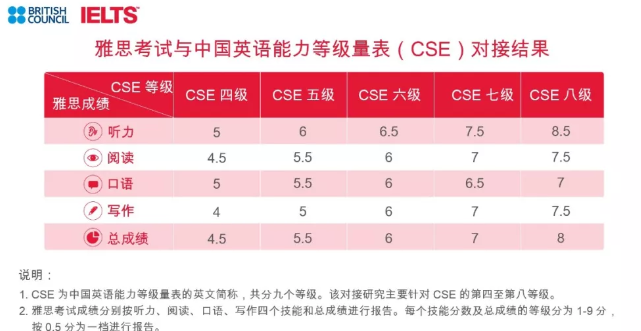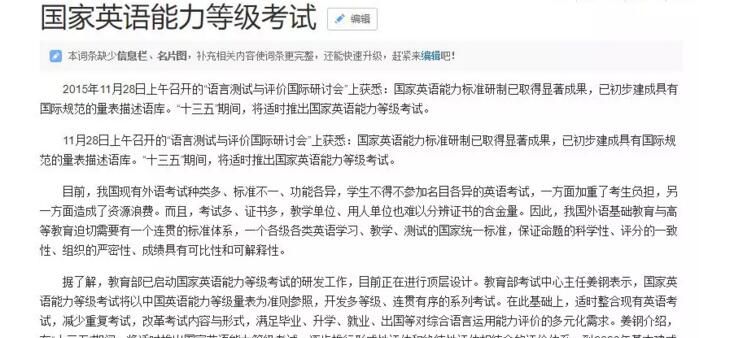2000年春季高考英语试题及答案(北京、安徽卷)
|
National Matriculation English Test (NMET 2000) 本试卷分第一卷(选择题)和第二卷(非选择题)两部分。考试时间120分钟。 第一卷(三大题,共95分) I. 单项填空(共25小题,每小题1分;满分25分) A)从A、B、C、D中找出其划线部分与所给单词的划线部分读音相同的选项。 例:have A. gave B. save C. hat D. made 答案是C。 1. music A. production B. persuade C. sugar D. stupid 2. regret A. cigarette B. vegetable C. message D. passenger 3. front A. hospital B. comfort C. fond D. introduce 4. through A. rough B. pillow C. roof D. pause 5. stomach A. cushion B. excellent C. delicious D. chimney B)从A、B、C、D四个选项中,选出可以填入空白处的最佳答案。 例:We ________ last night, but we went to the concert instead. A. must have studied B. might study C. should have studied D. would study 答案是C。 6. - Do you want tea or coffee? - ________. I really don't mind. A. BothB. None C. Either D. Neither 7. - I believe we've met somewhere before. - No, ________. A. it isn't the same B. it can't be true C. I don't think so D. I'd rather not 8. Summers in ________ south of France are for ________ most part dry and sunny. A. 不填; a B. the; 不填 C. 不填;不填 D. the; the 9. Old McDonald gave up smoking for a while, but soon ________ to his old ways. A. returned B. returns C. was returningD. had returned 10. The result of the experiment was very good, ________ we hadn't expected. A. when B. that C. which D. what 11. - It's a good idea. But who's going to ________ the plan? - I think Tom and Greg will. A. set aside B. carry out C. take in D. get through 12. - I just heard that the tickets for tonight's show have been sold out. -Oh no!__________. A. I was looking forward to that B. It doesn't matter C. I knew it already D. It's not at all interesting 13. The changes in the city will cost quite a lot, ________they will save us money in the long run. A. or B. since C. for D. but 14. - You're drinking too much. - Only at home. No one ________ me but you. A. is seeing B. had seen C. sees D. saw 15. The picture ________ on the wall is painted by my nephew. A. having hung B. hanging C. hangs D. being hung 16. It was an exciting moment for these football fans this year, ________ for the first time in years their team won the World Cup. A. that B. while C. which D. when 17. ________ the general state of his health, it may take him a while to recover from the operation. A. Given B. To give C. Giving D. Having given 18. Nick is looking for another job because he feels that nothing he does ________ his boss. A. serves B. satisfies C. promises D. supports 19. All the preparations for the task ________ , and we're ready to start. A. completed B. complete C. had been completed D. have been completed 20. Sorry I'm late. I ________ have turned off the alarm clock and gone back to sleep again. A. might B. should C. can D. will 21. One of the sides of the board should be painted yellow, and ________. A. the other is white B. another white C. the other white D. another is white 22. I finally got the job I dreamed about. Never in all my life ________ so happy! A. did I feel B. I felt C. I had felt D. had I felt 23. ________ some of this juice - perhaps you'll like it. A. Trying B. Try C. To try D. Have tried 24. John may phone tonight. I don't want to go out ________ he phones. A. as long as B. in order that C. in case D. so that 25. These wild flowers are so special I would do ________ I can to save them. A. whatever B. that C. which D. whichever II.完形填空(共25小题,每小题1分,满分25分) 阅读下面短文,掌握其大意,然后从26-50各题所给的四个选项中,选出一个最佳答案。 My Experience in a Free School At first I couldn't believe it! There were no 26 in rows; no bells rang; no one had to go to 27 . Although we all lived “in”, 28 made us go to bed at a certain time; there was no “lights out”. The 29 thing was that practically all the students went to class, 30 very few people stayed up late at night. Only the new people stayed up or 31 class. The new ones always went wild 32 , but this never lasted long. The 33 took some getting used to. Our teachers treated us like 34 ; never did we have to 35 “stand up”, “sit down”, “speak out”. I don't 36 one student who didn't try his best. The subjects were the same as those in 37 school, but what a difference in the approach(方式)!For example, in botany(植物学)we had 38 classes in the spring or fall, but instead we 39 two gardens, a vegetable garden and a flower garden. 40 in winter we each studied a few 41 things about what we had grown. In math the students built three different kinds of storerooms - small ones 42 , but usable. They did this instead of having lessons in the classroom. They really had a 43 time too, designing everything, drawing the blueprints, 44 the angles(角度)and so on. I didn't take 45 . I can't stand it! Besides, I could do the basic things with numbers. That's 46 ! 47 I think I am a ?48 person for having gone to the school. I can read and write as well as anyone else my age, and I can think better. That's probably a real big 49 between the free school and regular school-the amount of 50 . 26. A. desks B. lights C. students D. buildings 27. A. home B. bed C. class D. work 28. A. anybody B. nobody C. teachers D. parents 29. A. sad B. last C. good D. strange 30. A. and B. but C. so D. yet 31. A. attended B. took C. missed D. studied 32. A. from then on B. at first C. once more D. just then 33. A. freedom B. habit C. time D. people 34. A. workers B. pupils C. gardeners D. grown-ups 35. A. understand B. study C. play D. say 36. A. hear from B. feel like C. think about D. know of 37. A. night B. regular C. small D. real 38. A. all B. short C. no D. indoor 39. A. planted B. studied C. drew D. toured 40. A. Still B. Then C. Yet D. Next 41. A. wild B. successful C. usual D. particular 42. A. as well B.after a while C. of course D. as a result 43. A. funny B. great C. convenient D. thoughtful 44. A. looking out B. taking out C. finding out D. figuring out 45. A. math B. care C. botany D. notice 46. A. dull B. interesting C. enough D. dangerous 47. A. On the whole B. Once again C. Sooner or later D. After a while 48. A. careful B. better C. busier D. lovely 49. A. problem B. chance C. difference D. change 50. A. reading B. gardening C. teaching D. thinking III.阅读理解(共25小题,A节每小题2分,B节每小题1分;满分45分) A) 阅读下列短文,从每题所给的四个选项中,选出一个最佳答案。 A The Channel Islands are a group of British-owned islands lying in the English Channel(海峡), 10 to 30 miles off the French coast, and 70 to 90 miles from the English coast. There are ten islands with a total land area of 75 square miles and a total population of 123,000. The three largest islands, Jersey, Guernsey, and Alderney, have long been known for the fine breeds(品种)of cattle that are raised on them and named after them. In earliest known history the islands were considered part of Normandy, which was part of France, but the ruler of Normandy became king of England in 1066, and from then on the islands were looked upon as British land. English control was unbroken until World War II, when the Germans held the islands for five years. Although people on the islands speak both languages and they are considered English, their customs are more French than English. 51. Which of the following maps gives the right position of the Channel Islands? Br = Britain Fr = France Ch = Channel Islands 52. Jersey, Guernsey, and Alderney breeds of cattle are __________. A. considered best in England B. named after their birthplaces C. brought to the islands by the Germans D. raised on well-known farms by the French 53. The Channel Islands have been continuously under British rule since__________. A. earliest known history B. 1066 C. 1930s D. the end of World War II 54. Why do people on the Channel Islands follow French way of living? A. Their islands used to be part of France. B. Their islands are often visited by the French. C. They came from France. D. They speak French. B James Cleveland Owens was the son of a farmer and the grandson of black slaves. His family moved to Cleveland when he was 9. There, a school teacher asked the youth his name. “J.C.” ,he replied. She thought he had said “Jesse”, and he had a new name. Owens ran his first race at age 13. After high school, he went to Ohio State University. He had to work part time so as to pay for his education. As a second-year student, in the Big Ten games in 1935, he set even more records than he would in the Olympic Games a year later. A week before the Big Ten meet, Owens accidentally fell down a flight of stairs. His back hurt so much that he could not exercise all week, and he had to be helped in and out of the car that drove him to the meet. He refused to listen to the suggestions that he give up and said he would try, event by event. He did try, and the results are in the record book. The stage was set for Owens' victory at the Olympic Games in Berlin the next year, and his success would come to be regarded as not only athletic(体育的)but also political. Hitler did not congratulate any of the African-American winners. “It was all right with me,” he said years later. “I didn't go to Berlin to shake hands with him, anyway.” Having returned from Berlin. He received no telephone call from the president of his own country, either. In fact, he was not honored by the United States until 1976, four years before his death. Owens' Olympic victories made little difference to him. He earned his living by looking after a school playground, and accepted money to race against cars, trucks, motorcycles, and dogs. “Sure, it bothered(烦扰)me,” he said later. “But at least it was an honest living. I had to eat.” In time, however, his gold medals(奖牌)changed his life. “They have kept me alive over the years,” he once said. “Time has stood still for me. That golden moment dies hard.” 55. Owens got his other name “Jesse” when __________. A. he went to Ohio State University B. his teacher made fun of him C. his teacher took “J.C.” for “Jesse” D. he won gold medals in the Big Ten meet 56. In the Big Ten meet, Owens __________. A. hurt himself in the back B. succeeded in setting many records C. tried every sports event but failed D. had to give up some events 57. We can infer from the text that Owens was treated unfairly in the US at that time because __________. A. he was not of the right race B. he was the son of a poor farmer C. he didn't shake hands with Hitler D. he didn't talk to the US president on the phone 58. When Owens says “They have kept me alive over the years,” he means that the medals __________. A. have been changed for money to help him live on B. have made him famous in the US C. have encouraged him to overcome difficulties in life D. have kept him busy with all kinds of jobs 59. Which of the following is a suitable title for the text? A. Jesse Owens, a Great American Athlete B. Golden Moment — a Life-time Struggle C. Making a Living as a Sportsman D. How to Be a Successful Athlete? C McGill Comedy Club Important meeting today. Discussions on putting on Blazing Saddles.Union room 302, 3-4 pm. New members(both actors and non-actors, living and dead )are welcome. History Students' Association Prof. Michael Cross of Dalhousie University will be speaking on“Unskilled Labours on Rivers and Canals in Upper Canada, 1820-1850:The Beginnings of Class Struggle,”at 10 am in Leacock 230. Design Mirror Sale All types and sizes of design mirrors priced to please . Sale today in Union room 108. McGill Teaching Assistants' Association A general meeting, for all the TAs, will be held at 4 pm in Leacock 116 . Women's Union Important.General Meeting at 6 pm, Union room 423. Speaker on “Importance of deciding basic goals of the Women's Union.”Everyone, old, new and those interested, please attend. Film Society Last meeting of the term for all members. All managers are required to be present. 6:00 sharp, Union room 434. Canadian University Students Overseas CUSO presents “Guess Who's Coming to Breakfast”at 7 pm, Newman Centre,3484 Peel. Find out about CUSO here and overseas. Everyone welcome. 60. Where can you probably find this text? A. In a school magazine B. In a national paper. C. In a guide book. D. In a university daily newspaper. 61. If you are interested in arts, where would you go for a visit? A. Leacock 116. B. Union room 423. C. Union room 108. D. Newman Centre, 3484 Peel. 62. Which of the following is the name of a play? A. Blazing Saddles. B. Guess Who's Coming to Breakfast. C. Importance of deciding basic goals of the Women's Union. D. Unskilled Labours on Rivers and Canals in Upper Canada, 1820 - 1850. D Fish Ears Tell Fish Tales Fish have ears. Really. They're quite small and have no opening to the outside world carrying sound through the body. For the past seven years, Simon Thorrold, a university professor, has been examining fish ears, small round ear bones called otoliths. As fish grow, so do their otoliths. Each day, their otoliths gain a ring of calcium carbonate(碳酸钙).By looking through a microscope(显微镜)and counting these rings, Thorrold can determine the exact age of a young fish. As a fish gets older, its otoliths no longer get daily rings. Instead, they get yearly rings, which can also be counted, giving information about the fish's age, just like the growth rings of a tree. Ring counting is nothing new to fish scientists. But Thorrold has turned to a new direction. They're examining the chemical elements(元素)of each otolith ring. The daily ring gives us the time, but chemistry tells us about the environment in which the fish swam on any given day. These elements tell us about the chemistry of the water that the fish was in. It also says something about water temperature, which determines how much of these elements will gather within each otolith ring. Thorrold can tell, for example, if a fish spent time in the open ocean before entering the less salty water of coastal areas. He can basically tell where fish are spending their time at any given stage of history. In tne case of the Atlantic croaker, a popular saltwater food fish, Thorrold and his assistant have successfully followed the travelling of young fish from mid-ocean to the coast, a journey of many hundreds of miles. This is important to managers in the fish industry, who know nearly nothing about the whereabouts of the young fish for most food fish in the ocean. Eager to learn about his technology, fish scientists are now lending Thorrold their ears. 63. What can we learn about fish ears from the text? A. They are small soft rings. B. They are not seen from the outside. C. They are openings only on food fish. D. They are not used to receive sound. 64. Why does the writer compare the fish to trees? A. Trees gain a growth ring each day. B. Trees also have otoliths. C. Their growth rings are very small. D. They both have growth rings. 65. Why is it important to study the chemistry of otolith rings? A. The elements of the otoliths can tell the history of the sea. B. Chemical contents of otoliths can tell how fast fish can swim. C. We can know more about fish and their living environment. D. Scientists can know exactly how old a fish is. 66. How would you understand “fish scientists are now lending their ears”? A. They are very interested in Thorrold's research findings. B. They want to know where they can find fish. C. They lend their fish for chemical studies. D. They wonder if Thorrold can find growth rings from their ears. E The United States: Fliers may want to have their tickets in hand before catching their planes, but the airline companies are doing everything they can to bring forward cost-saving ticketless flight- no paper needed, just a ticket number and a photo ID(带照片的身份证). Anyone who buys a Northwest E-ticket through the airline's computer service by June 16 will get an award(奖励). Next time you fly, you can buy another ticket for a friend for $99, good anywhere in the US or Canada through Feb. 12, 2000, along with the lowest ticket prices. Some airlines offer extra frequent-flier miles for the ticketless crowd. And there are rising punishments for paper lovers. American, Northwest, United, and last week, US Airways have raised the cost for lost-ticket replacement(替换)to $70 from either $60 or $50 . The airlines insist that the increase in price is not meant to push travelers toward E-tickets but only covers the increasing cost of replacing and tracking a missing ticket. 67. Why is the new ticketless flight introduced? A. It is cheaper for air travelers. B. It helps reduce the cost for airlines. C. It can use computer to plan air traveling. D. It helps prevent fliers from losing their tickets. 68. To encourage people to take ticketless flights, the airlines ___________. A. sell their tickets for $99 from June to February the following year B. let travelers go to both the US and Canada with the same tickets C. allow each traveler to have an extra $99 ticket for a friend of theirs D. offer ticketless travelers free miles to fly in the US 69. Who are the paper lovers mentioned in the text? A. People who like to have paper airplane tickets. B. People who love paper products of various kinds. C. People who travel with paper on a plane. D. People who have lost their ticket and buy a second one. 70. The airline companies say that they have raised the lost-ticket replacement price in order to ____________. A. attract travelers to take ticketless flights B. punish those who insist on using paper tickets C. do better than other airline companies D. pay for the work to deal with lost tickets B)根据对话内容,从对话后的选项中选出能填入空白处的最佳选项。选项中有两项为多余选项。 Charley: Come on, Steve. 71 Steve: Wait a minute. 72 Charley: O.K. Steve: By the way, can we give any sister a ride home tonight? Charley: Sure. 73 Steve: Yeah. She wants to take some pictures. Charley: 74 Steve: Yeah. She'd like to work for a newspaper someday. Charley: But I think it might be difficult for her to succeed. 75 A. Well, she always enjoys sports games, doesn't she? B. I didn't know Eva was interested in photography. C. There are a lot of photographers out there. D. You mean she's coming to the game, too? E. I just have to close up the shop. F. Eva's closing the door. G. It's time to go. 2000年普通高等学校春季招生全国统一考试 (北京、安徽卷) 英语 National Matriculation Engkish Test(NMET 2000) 第二卷 (共55 分) IV.单词拼写(共10小题,每小题1分,满分10分) 根据下列句子及所给汉语注释,在句子右边的横线上,写出空缺处各单词的正确形式。(每空只写一词) 76. We have to get the job done __________(秘密). 76. __________ 77. My train was 20 minutes late in the morning and there was a_________(相 似的)delay in the evening. ? ???? 77. ___________ 78.Miss Li speaks English with excellent ______(发音). ?78. ___________ 79. This company is one of the Post Office's biggest ______(顾客). 79. ___________ 80. The drowning swimmer required the lifeguard's ___________(即刻 )attention. 80. ___________ 81. Our victory was __________(庆祝)with music and dancing. 81.__________ 82. I've never seen a Shakespeare's play __________ (表演)so wonderfully. 82. ___________ 83. Nowadays most people use paper __________(手帕) .83. ____________ 84. The boy spoke in a very low voice __________(承认) he had broken the glass. 84. __________ 85. The__________(大多数)of people in my neighborhood are Italian. 85. __________ V . 短文改错(共10小题,每小题1.5分;满分15分) 此题要求改正所给短文中的错误。对标有题号的每一行作出判断:如无错误,在该行右边横线上画一个勾(√ );如有错误(没行只有一个错误),则按下列情况改正: 该行多一个词:把多余的词用斜线()划掉,在该行右边横线上写出该词,并也用斜线划掉。 该行缺一个词:在缺词处加一个漏字符号(∧),在该行右边横线上写出该加的词。 此行错一个词:在错的词下划一横线,在该行右边的横线上写出改正后的词。 注意:原行没有错的不要改。 Dear Peter, Thanks very much on inviting me to your birthday 86.____________ party on Sunday. I'd like very much come but 87. ____________ I had an examination on Monday morning. It is 88. ____________ a very important exam but I can't afford to 89. ____________ fail it. I'll spend all the whole weekend reading 90. ____________ and prepare for it. So I'm really sorry that 91. ____________ I won't be able to come in this time. Hope you 92. ____________ can understand. I'll take this chance to wish 93. ____________ you wonderful time on your birthday. Happy 94. ____________ birthday, Peter, and many happy return of the 95. ____________ day! Yours, Li Ming VI. 书面表达(满分30分) 为了丰富外国留学生的生活,你校学生会将举办一次音乐周活动。请你以组织者的身份写一个书面通知书。有关内容如下: 时间:5月第1周 活动:1.演唱歌曲:流行歌曲 2.器乐演奏:古典和民间音乐 3.音乐比赛:听歌曲片断,然后猜出处 地点:届时通知 参加者请于4月20日前报名。 注意:1.书面通知应写成一篇连贯的短文; 2.可以适当增减细节; 3.词数100左右; 4.通知格式已为你写好; 5.生词:古典 - classical 民间 - folk 乐器 - musical instruments 比赛 - contest * * * * * * * * * * * * * * * * * * * * * * * * * * * * * * * * * * * April 10,2000 Dear students, _____________________________________________________________________ _____________________________________________________________________ _____________________________________________________________________ …… Come to the great fun! 2000年普通高等学校春季招生全国统一考试英语试卷答案(北京、安徽卷) I,II,III(key to 1-75) 1.D 2. A 3. B 4.C 5. A 6. C 7. C 8. D 9. A 10. C 11. B 12. A 13. D 14. C 15. B 16. D 17. A 18. B 19. D 20. A 21. C 22. D 23. B 24. C 25. A 26. A 27. C 28. B 29. D 30. A 31. C 32. B 33. A 34. D 35. C 36. D 37. B 38. C 39. A 40. B 41.D 42.C 43.B44.D 45.A 46.C47.A 48.B 49. C 50.D 51.C 52.B 53. D 54. A 55. C 56. B 57.A 58. C 59. A 60. D 61. C 62. A 63. B 64. D 65. C 66. A 67. B 68. C 69. A 70. D 71. G 72. E 73. D 74. B 75. C IV. 76. secretly 77. similar (same不可接受) 78. pronunciation 79.customers 80. immediate(sudden不可接受) 81. celebrated 82. performed (performance, acted不可接受) 83. handkerchiefs/handkerchieves 84. admitting/confessing 85. majority(most不可接受) V. Dear Peter, Thanks very much on inviting me to your birthday 86. for party on Sunday. I'd like very much ∧come but 87. to I had an examination on Monday morning. It is 88. have a very important exam but I can't afford to 89. and/so fail it. I'll spend all the whole weekend reading 90. all and prepare for it. So I'm really sorry that 91. preparing I won't be able to come in this time. Hope you 92. in can understand. I'll take this chance to wish 93. √ you ∧wonderful time on your birthday. Happy 94. a birthday, Peter, and many happy return of the 95. returns day! Yours, Li Ming VI. 一、评分原则: 1. 本题总分为30分,其中内容和语言占29分,词数占1分。按7个档次给分。 2. 评分时,先根据文章的内容和语言初步确定其所属档次,然后以该档次的要求来衡量,确定或调整档次,最后给分。词数在90~110之间的,加1分。 二、内容要求: 1. 学生会将举办音乐周 2. 介绍音乐周的演唱及演奏内容 3. 活动内容还包括音乐比赛 4. 介绍音乐比赛的内容和方法 5. 报名的时间、地点和方法 三、各档次的给分范围和要求: 第七档:(25-29分)能写明全部或绝大部分要点;语言基本无误;行文连贯,表达清楚。 第六档:(20-24分)能写明全部或绝大部分要点;语言有少量错误;行文基本连贯,表达基本清楚。 第五档:(16-19分)能写明大部分要点;语言有一些错误;行文不够连贯。 第四档:(12-15分)能写明基本要点;语言虽有较多错误,尚能达意。 第三档:(8-11分)能写出部分要点;语言错误多,影响意思表达。 第二档:(4-7分)只能写出一、两个要点;语言错误很多,只有个别句子可懂。 第一档:(0-3分)只能写出与所要求内容有关的一些单词。 四. 说明: 1. 内容要点可用不同方式表达。 2. 对紧扣主题的适当发挥不予扣分。 五.One possible version: Dear students, The Students Union has decided to organise a music week. It will be held in the first week of May. The activities include singing pop songs and playing classical and folk music. Bring your own musical instruments, please. A music contest will be included, too. The students taking part in the contest will listen to part of a song or a piece of music, and then guess where it comes from. If you'd like to take part in the music week, please come and sign up for it before April 20th. The place for the activities will be announced later. Come to the great fun! |








